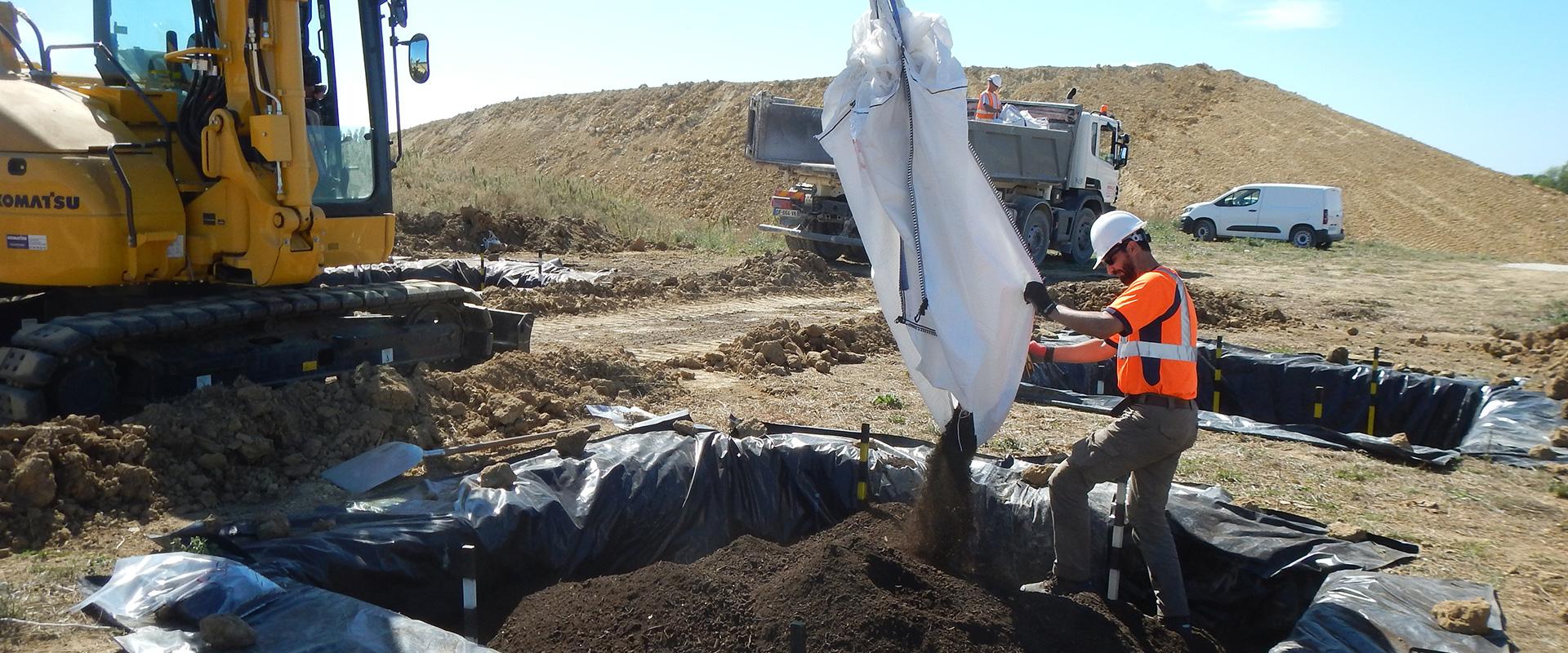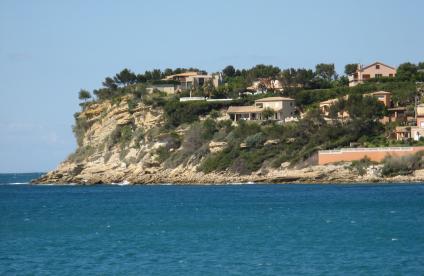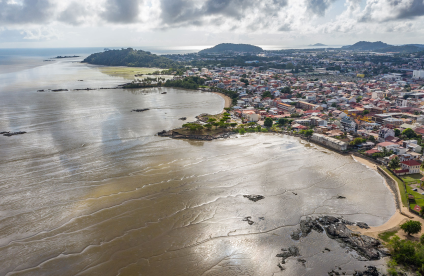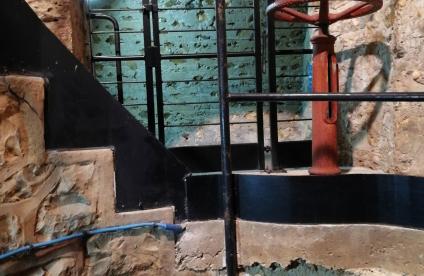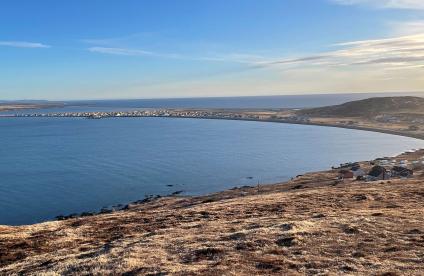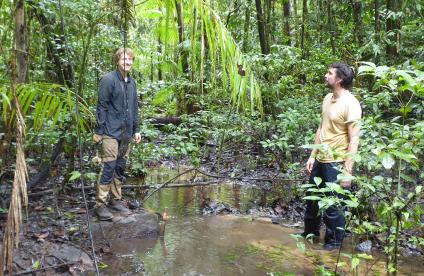The BRGM was a partner in the INSPIRATION project for "INtegrated Spatial PlannIng, land use and soil management ResearchAcTION". The project, coordinated by UBA, Germany's Environment Agency, involved 22 partners from 17 European countries, from 2015 to 2018.
Funded by the European Commission under the H2020 programme, this coordination and support project developed a strategic research agenda (SRA) for Europe on soil and land use management.
Sustainable management of soils and land use
Sustainable land use management aims to balance supply and demand for natural resources and capital so that the effects of various factors of pressure can be managed by reducing the overall footprint of human production and consumption.
Managing soil and land resources appropriately is essential to ensure a sustainable future for Europe's citizens. Applying results and knowledge from research is fundamental to improve ways of preserving soils and lands for future generations and to maintain competitive economies and healthy landscapes. Efficient use of the ecosystem services provided by the soil-water-sediment system can offer solutions to meet the needs and challenges facing societies.
A demand-side approach
The aim of the INSPIRATION project was to develop a strategic research agenda (SRA) for Europe on soil and land use management.
The INSPIRATION project developed a bottom-up approach based on understanding the needs of stakeholders in the public and private spheres, the scientific community, financial agencies and society.
Some 500 players working in soil, water and sediment management in 17 European countries were consulted.
The research needs expressed were collected in three phases:
- consultations via individual interviews,
- national workshops,
- transnational workshops for EU-wide consolidation purpose.
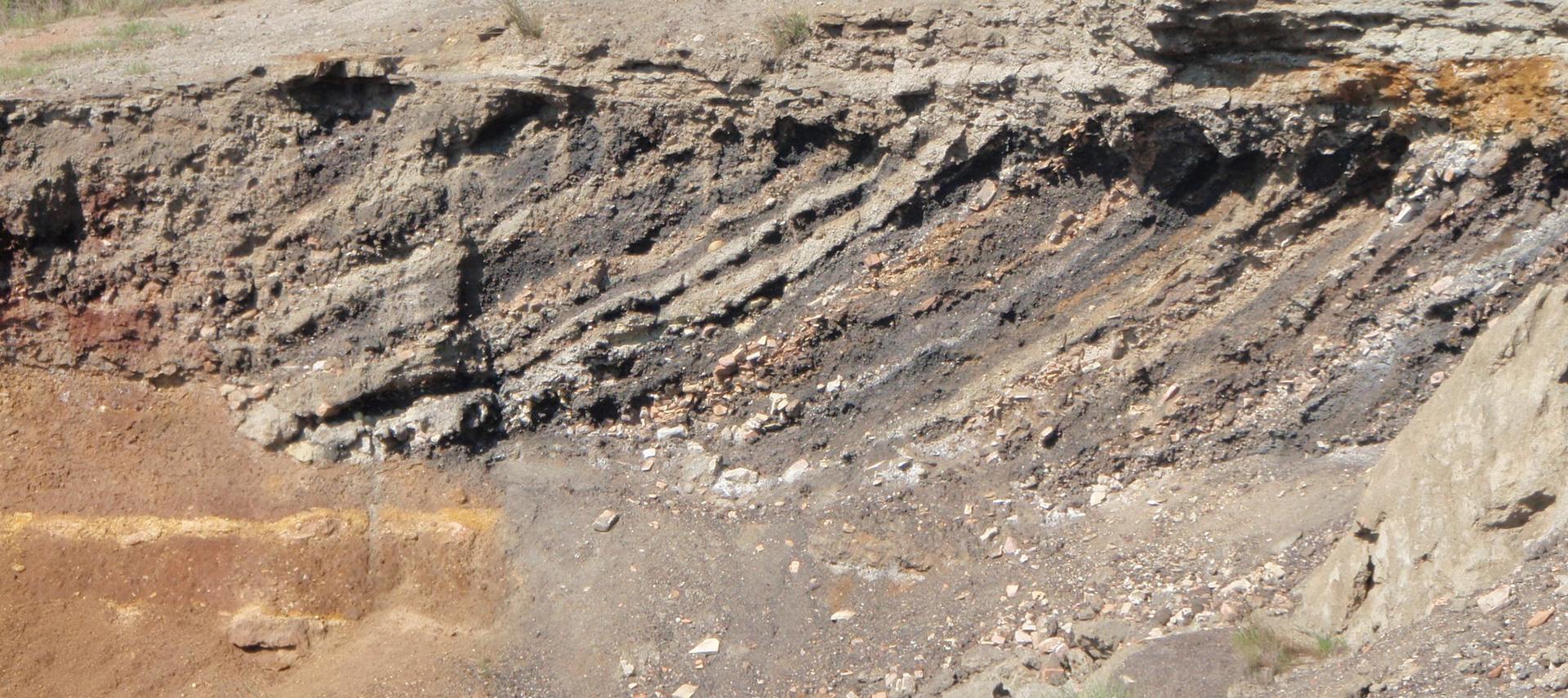
Key figures
-
17.00countries
-
39.00topics
-
More than500.00experts
-
20.00workshops
39 topics making up a research agenda for Europe
39 research topics were finally selected for inclusion in the INSPIRATION SRA agenda.
22 of these are organised into 4 themes:
- demand for natural resources,
- functions of natural capital,
- local and regional land management,
- impacts at the global, European and local scales.
These are completed by 17 further topics for integrated research.
Additional briefing notes were produced for some specific fields where more in-depth collaborative research across Europe would be needed.
Webinar INSPIRATION - 1. Details about the INSPIRATION Strategic Research Agenda (SRA)
Transcription
The broadcast is now starting. All attendees are in listen-only mode.
Right. Good afternoon, everybody. Thank you very much, indeed, for giving up some of your Friday afternoon for a very short webinar to give you an introduction to the outcomes of the INSPIRATION Horizon 2020 project and to give you an indication of what is in the strategic research agenda that we've developed to look at the topic of sustainable spatial planning, land use and soil management. My name is Paul Nathanail. I'm part of the core group of the INSPIRATION project and I'm joined by Stephan Bartke, who has been coordinating the project for us from Germany, from the Umweltbundesamt. Without further ado, I'm going to carry on with the slides. I'm just letting you know that the session is being recorded and you'll be sent a link to the recording when we've finished. If you have any questions, please either type them into the chatbox, the question box, or drop either Stephan or myself an email afterwards. We will pass on your contact details to a colleague in BRGM, who can also send you a copy of the slides that I'm using for you to look at and share with any of your own colleagues. So, a bit of background about where INSPIRATION came from. It emerged from a call under Societal Challenge #5, and the challenge there was about developing a low-carbon resource-efficient economy that is based on a supply of raw materials that is long-term sustainable. And within that challenge, there's a particular call to look at how we structure research on soil, land use and land management across Europe. Within that call, there was a need to coordinate research that is carried out in different parts of Europe and is, therefore, fragmented, to find ways of getting more people involved collaboratively and in a more coherent way so that the research can have a bigger impact on that low-carbon resource-efficient economy. The main focus was to create dialogue between different European stakeholders, scientists, funders and end users, to agree what the priorities for research are and, therefore, help target the funding for those kinds of research projects. One of my favorite professors, when I was a young student, said: "Research isn't finished until it is written up and published in a scientific journal." Well, these days, even that isn't enough, and you've got to make an impact. The research has to make a difference to the way that we do things. Research includes creating new knowledge, transferring that knowledge from one area of application to another, uptake of that knowledge by practitioners, demonstrating its value and its applicability and then, ultimately, making it good practice through the publication of codes and standards. And much of what INSPIRATION has identified as a need straddles that spectrum from creation right the way through to making it normal and routine. Why do we need this new knowledge? Well, Margot De Cleen from the Netherlands talked about the need for a new knowledge if you're going to change the way you approach soil. Soil serves a variety of different functions. It offers us a variety of different services. But it is not well enough understood yet for us to be able to manage it most effectively. And that which is not understood is difficult to come up with valid policies, practices, and then the implementation of those practices. So, how did we work out what we needed to know? Well, INSPIRATION took a very democratic bottom-up approach. It began at the beginning with talking to over 500 scientists and end users across Europe, including funders of research and citizen groups, to identify, in each of the countries that are participating in INSPIRATION, what the national research and innovation demands are. Those... that exercise resulted in over 2,000 individual research calls, and they were synthesized into four clusters. I'll come on in a minute and explain what those clusters are. They were then prioritized and ultimately presented in a strategic research agenda that's been the basis of the matchmaking we've tried to do between funders. So, this bottom-up approach is absolutely central to the way that we've gone about identifying research needs. This is an example of the kind of resolution and detail that came from the U.K. The picture in the middle shows you a group of us working hard here in Nottingham, where I'm based, capturing flipcharts, and what's not shown in the picture is the number of interviews that were conducted one-to-one with key people in the sector. And that was duplicated across Europe. That work, the work that resulted in 2,000 or so research needs, that was then analyzed. It was analyzed and distilled down into 22 thematic needs clustered into four topics The demand on natural capital and ecosystem services, the availability of that natural capital, the way that we manage land by drawing on that natural capital, meeting the demand, and then looking at how well we understand the overall impact of our activities at the local, regional and global scale. So, under those four themes, we've ended up with 22 areas where research is needed. Now, in addition, there were 17 research needs identified that cut across those themes. This slide hides the details, it just gives you the main headline topics. Just to pick a couple, we've got emerging contaminants, the impacts of climate change, the need to keep our soils fertile and to look at how we value ecosystem services in this particular context in agricultural land uses. And so, we grouped those integrated needs into four categories, one going from knowledge, data and information to practice, the second one looking at the need to analyze both demand, potential capacity and the risks posed by the way we call on natural resources. The challenge of managing the urban environment. Increasingly around the world, the population is becoming more urbanized, and some cities are growing, some are shrinking, some are getting taller, some are sprawling. There's an increasing recognition that we need to take a circular approach to land, in the same way as we are to the economy as a whole. And the concept of urban metabolism, looking at the supply, consumption, or use, and then outcomes of different energy material uses in cities. There's a recognition that we have a legacy of disturbed landscapes. Contamination, instability, and so on. And then, finally, and perhaps really this ought to have been at the very top, but the overarching challenge of dealing with a changing climate, more intense weather patterns and how we're going to deal with those. So, the outcome is a strategic research agenda. And I'll show you... I'll tell you in a couple of minutes how to access that. But that has really helped us go out and talk with funders across the 17 countries that were in INSPIRATION and try to see where their priorities, where their institutional priorities map onto, coincide with the strategic research agenda. And then we're looking for funders in different countries who have similar interests to see whether they would like to get together and collaboratively fund projects that will address the research needs we've identified. Now, in the background to all this was the publication of the sustainable development goals by the United Nations. These were published after we began our work, but we very early on realized that our research needs map onto these SDGs, and the SDGs are central to the way that the European Commission is thinking about its budget allocation over the coming decade. So, the key sustainable development goals that our research needs address are 6, 11, 13, 14 and 15. 6 is looking to deliver clean water and sanitation. 11 on sustainable cities and communities. 13 on climate action. 14 and 15 on life below water and life on land. Now, we also think that there is a contribution to be made to the SDGs 1-12, and we're really struggling with 16 and 17. But it's important to realize that we feel there is value to be had in terms of carrying out the INSPIRATION research if we're serious about wanting to try and achieve the SDGs. Of course, this needs resource, this needs funding, and we've identified a number of different funding models, some of which will be familiar, but perhaps stretched or being cut back, sources of international funding, bilateral funding between different countries. There's obviously the European dimension, Framework 9, the JPIs and so on. There's a lot of national funding in some countries, but not in others. We're seeing the recognition of public-private collaboration on research. To give you an example from research here in the U.K., there's something called Innovate UK to help organizations move up the technology readiness level. The third sector, the philanthropic sector, that has been very supportive of research that will support social justice, environmental justice and environmental protection. And then, finally, crowd funding, where there is no obvious large funder, but lots of small sums of money can be aggregated to achieve a bigger project. In terms of moving forward, the project finishes at the end of February, and what we're now working on is a funders' platform to help implement the strategic research agenda. The idea is that this will be a cross-national platform of funders, who will hopefully have identified that their funding priorities have something in common and who are willing to collaborate to develop calls for co-funded research proposals. Over the next 18 months, the partners within INSPIRATION have agreed to continue to act as national contacts. We will liaise with each other and we will share information with you, our national stakeholders and, in particular, funders so that the fragmented picture that was identified at the call stage is overcome and is reduced. There is an online version of this strategic research agenda, and there's a database to allow you to search for your priorities and record your interest in specific activities. So, my final slide - I said this was going to be a short presentation - is to acknowledge the contribution of the European Union and also the many partners from across Europe, who've been instrumental in gathering those research needs and distilling them into something that is relatively succinct and transparent. So with that, I'd like to close my time of talking and take any questions that you may have. You can type your questions into the question panel in the webinar... box, or the webinar interface now. In the U.K., if there is an auction, we give people three chances, so, I'm going to give you a count of three for any questions. If there aren't now, then look out for an email with the link to the recording and, as I said, I will pass your email contacts on to BRGM, who will email you with the copy of the slides. Aha! I have one. "How is INSPIRATION linked to the joint program on soil?" We've been liaising with a wide number of organizations to bring them... to bring their knowledge and their awareness of the strategic research agenda, and what we're hoping is that the ideas that we've come up with, that we've reported, will be taken up and put into action by as many partners as possible. In my ideal world, I'd like, in 2 or 3 years' time, to go to a conference and see somebody presenting a project which I recognize as coming from INSPIRATION, that's been funded by another body. And so, the ideas are there for people to take and use and support as they wish to. I hope that answers that particular question. There's a reminder that in about 10 minutes we've got another webinar that focuses much more on how to get involved. So, if you're a funder in particular, then in about 10 minutes' time or so, at half past the hour, there'll be a chance to look at some more detail of that funders' platform and the period between March 2018 and August 2019. So, any more questions? Going once, going twice, going three times. I'd like to thank you very much for your attention this afternoon. Have a good afternoon and a good weekend. And, as I said, look out for a link to the recording and then an email from BRGM with a copy of the slides. And hopefully see some of you at half past the hour for the next webinar. Thank you.
Webinar INSPIRATION - 2. Means to get involved in funding and implementing the SRA
Transcription
The broadcast is now starting. All attendees are in listen-only mode.
Good afternoon, folks. Thank you very much, indeed, for coming to this webinar in order to learn how to get better involved in funding and then implementing the INSPIRATION Strategic Research Agenda. My name is Paul Nathanail. I have been working in the core group of INSPIRATION, and the webinar will be delivered by the INSPIRATION coordinator Stephan Bartke. Just before I hand over to Stephan, you will be sent a link to a recording of this webinar, and I will pass on your email addresses to BRGM to email you a copy of the slides that you'll be seeing. If you have any questions, then there is a box in the "Go to Webinar" interface for you to type in your questions, and there will be time at the end of Stephan's presentation to take any questions. So, without any further delay, Stephan, the floor is yours. Thanks a lot, Paul, and good afternoon to all of you. So, my name is Stephan Bartke from the German Environment Agency, Umweltbundesamt, and I welcome you to this webinar about the means of getting involved in funding and implementing the INSPIRATION Strategic Research Agenda. There has been a second webinar, which you can access on our website, which gives you, in a nutshell, more information about the content of our strategic research agenda. The objective of this webinar is to give you a brief introduction on how you can become a partner in funding or in implementing topics of the research agenda... that's for you as a potential funder or grant provider. And the key component of this is to provide innovation aimed towards providing innovation. The components are to provide you, first, with all the information on what all this is about, and second, to enable you to take action. And, if there is only one thing that you remember from this webinar, then it should be the website that you see on the bottom of the page, www.inspiration-agenda.eu Let me use just half a minute to set the agenda with a picture. INSPIRATION is short for "Integrated spatial planning, land... use... which received funding from the European Commission under HORIZON 2020, a project that is terminating now, in February 2018, but continues in its ambition to facilitate, now, the implementation of our research agenda, a research agenda that focuses on soil, land use and spatial planning, as they are fundamental to all Europeans. Soil and land research, themselves, need coordination across regions, disciplines and stakeholder groups to probably address the larger needs that we have, in the bottom-up process, understood to be around in Europe. INSPIRATION provided a stakeholder demand-driven strategic agenda that collates the research needs out there in Europe. Our vision is now to support the implementation of this INSPIRATION Strategic Research Agenda, to provide information to funders and to facilitate a matchmaking of likewise interested partners. And we would like to support potential funder platforms on their way to implementing parts of the activity. There are 3 main channels, or options, through which you can become active and learn more about INSPIRATION and its background. The first one focuses on the coordination and support action of INSPIRATION. It is a direct part of INSPIRATION-H2020. The second one details the INSPIRATION Strategic Research Agenda. It provides all the information with regard to the... collated under the agenda. And also, which is crucially up-to-date, a database that collates funding interests from across Europe. And finally, in parallel and in addition to all of that, we are providing you national contact people in at least 17 different European countries and also a contact point for all countries outside that core group of original INSPIRATION partners in the European network. Let me go into each of these three pillars, first, to the INSPIRATION-H2020 website. At this website, you can get all the background, detailed information about INSPIRATION's coordination and support action. We lay down why research in land, but also borders, soil and special planning activities, is so urgent and is needed to address stakeholders' demands in Europe. We are, furthermore, reporting the activities from the 17 different countries that participated in the INSPIRATION project towards collating the research demands, and we present, of course, the outcomes of that endeavor. Let me take you just directly to that website. On this website, you find in the top navigation bar the different pillars that I just introduced. So, you can go here... to find... who participated and to learn about our great international advisory board and the EU operation of the project, which supported us. You find information on the conception and model which was behind the collation of national research needs into a strategic research agenda. And you find detailed information about how that was done and the steps in the different countries that participated in INSPIRATION. For example, in Poland. For each of those countries, you find the national contact people, who were part of it, who did that work, and you also find a national language summary of the approach of INSPIRATION and the key outcomes relevant for that country. So, if you are interested in a specific country, you can get further detailed information here. Moreover, you find the general outcomes and information about INSPIRATION, the deliverables, but also at the policy level, and the collection of the different newsletters that have... in a level report checked. Inasmuch as information on crucial collaborators whom we have been in touch with during our project's elaboration. The INSPIRATION-H2020 website is the medium to learn about the coordination and support action. But this activity will be closed by February 2018. That doesn't mean that the information will be foregone, but that we are now starting a new activity, which is on a voluntary, self-funded basis by the INSPIRATION partners. INSPIRATION partners in all 17 countries continue in their support for introducing the agenda to potential funders and supporting them in matchmaking activities. And our key instruments for providing information, leveraging their contacts and also potentially implementing actions are all collated on the website inspiration-agenda.eu So, let me also give you a brief idea about that website. If you go to the website, you will first land on this page, which will give you, as all the others, an agenda introduction as to what, in general, INSPIRATION is about. You find some contextual information about the bottom-up process, and, as something that is, at the moment, being developed you will find in an additional button in the future for information on the ongoing or just implemented activities towards making specific topics of the research agenda happen, finding collaborative project funding for a project. But the most instrumental use of this website, which I would like to introduce to you, can be found by following this link to the database of the research agenda. And here, you can access the different research topics that have been identified in the research agenda. Remember, in total there have been 39 different research topics in INSPIRATION. So, maybe far too much to explain them in a nutshell now. They have arisen from the research demands that were expressed to us by more than 500 experts in Europe. So, behind each of those topics, there's a long story and a long contribution by experts. And you can use this medium to understand, on the one hand, what the topics are, for example, this topic on integrated environmental assessment & soil monitoring in Europe. You can go there and see all the information about those topics, on why they are relevant for funders to prioritize them on their research agendas, for end users on why the research should be undertaken... under the prospects or also in the scientific motivation for doing research, and for citizens to understand why it is necessary to invest here. You will find in-depth information on the goals of such an activity, on what might be a potential risk of not undertaking such an activity. The activities are classified in, as it were, the general type of research approach they belong to and are also classified in regard to which sustainable development goal they contribute to. And what you can further see is that you can find the information on which national research demands, taken from the national workshops and interviews, have been collated into this overall activity. So, you can see, for example, that the topic of soil quality has been mentioned in the Netherlands. And you can use the button to visit that website to understand more about what, exactly, the Dutch wanted to learn. And you can find in the way around, then, a list of topics that these specific demands went into. And you can do that for all of the more than 200 national topics that have been identified, and behind them, more than 1,000 research questions. And as you may have seen, just on the sidebar before, it is not only... an indication of the specific interest in this topic and to providing funding to it. So, if you click on that button, you can see the information on the contact partner and also... you see the interest this funder has in implementing the research agenda. Then, you can provide information, and you can do that by telling of your interests here, and you're brought to an input slide where you just give details of your institution and where you can say if you are... if it can be put on the site or if it should be kept confidential to the internal website. Well, internal website access is only available to the national contacts, about whom I will talk in a minute. So, you can express confidential information here, but also, you can share your view with other partners. And by going here, you then have the opportunity to say for each of the 39 funding topics what, precisely, your interest is, and if you will provide funding for that, possibly already have, or whatever, you'll find the correct information for you. This is the key functionality of the INSPIRATION database, and if you want more information about that, there is a specific way for you to address that. There are people who will be ready for you by email or phone to provide you further information about how you can express your interest in funding topics via the suggestion form. Also, you can, of course, just directly talk to the person and ask her or him to support you in collating your interests into collaborating with other partners. These people, your national contacts, they will support you also in regularly checking updates of the database and informing you, then, if you get into contact with them, informing you of upcoming research intentions from other European countries. And in return, they will inform others about your intention, if you give them the mandate to do so. That will help us to identify potential matches and facilitate the next steps for matchmaking. It will also help us to monitor and initiate these collaborations and cooperations. What are the gains from such a networking activity? Well, we assume that there will be a quite obvious benefit in the larger total budget that can be achieved and the transnational research infrastructure. You can achieve wider ideas and views through multidisciplinary research approaches, as they are called in the bottom-up INSPIRATION research agenda. The aim is to complement each other's countries' expertise through the collaboration that is enabled here. It can ensure involvement of highly competent and skilled researchers and committed stakeholders from across Europe. It could help to produce more implementable research results. Also with regard, for example, to guidelines, recommendations... decision tools, using the different capabilities of the individual funders' experience and expertise. Exchange the experiences between the different funders in the network via the national contacts on specific topics and get in contact. Get in contact with one of these funders that you can also find on the website inspiration-agenda.eu Let me just say a word in the last minute about what a potential collaboration should look like or could look like. It is actually up to your own desires. At INSPIRATION, we like to introduce funders with a co-interest in a certain topic. So, collaboration can allow you to influence the choice of cause and proposals and then to co-fund producers, proposals that cover your priority topics via referrals from others. Funding should, therefore, be only for the research teams that you specify as a funder. Let me make clear, therefore, that INSPIRATION does not expect you to come up with a very complex or administratively demanding procedure, but our intention is to provide you with very easy ways to implement parts of the agenda. And as part of that, this is one element. INSPIRATION will be supporting an initiative to set up a new research... funders' platform to support implementation of the research agenda. There will be a workshop in late spring for funders to discuss details of that potential collaboration. And if you're interested in joining that workshop, please talk to your national contact as they will, then, be instrumental for you to become part of that workshop and to get in contact with the already established network of 5 funders from 3 different countries that have already committed to support that activity. But also, for all other questions, these people will be instrumental for you... to get in touch. My time is up. I'd like to thank you for your attention. I'd like to thank the European Commission for the co-funding provided to the INSPIRATION coordination and support action, the stakeholders from across Europe that helped us support the research demands, INSPIRATION partners for their great work, and again, you for joining us today. Please get in touch with us. We look forward to hearing from you. And for now, we are looking forward to your questions. If you have any, please post them to the chatbox. Paul, maybe I can ask you to provide the further facilitation of the Q&A.
Thanks very much indeed, Stephan. Folks, this is your chance to type in any questions. While you're thinking about that, a reminder that you'll get an email with a link to a recording of the webinar, and I will pass on your email addresses to our colleagues in BRGM, who've been leading on the dissemination of INSPIRATION, to email you a set of the slides that Stephan's been using and the link to the website that he's been talking you through. There are no questions yet, so, Stephan, it looks like you were very clear and everybody's just excited and wants to log on to the database and register their interest. I'm just going to give it another few seconds. So, I'm going to count down from three. If there are no questions, I'll wish you a good weekend. So, 3, 2, 1. So, there are... Ah! We have a question. Just bear with me a second. For some reason, my... There we go. That's better. “Is land restricted to land or does it include water, too?” Stephan, you can answer.
Yeah. It does not include oceans, but it does include quite any other form of water. So, at INSPIRATION, we have been very ambitious when going to our... and let me go, for that example, back to the overview of the topics. We have been very keen on looking not only at a very close definition of land, but on looking at the soil sediment water system.
And you can see that in different areas like, for example, in the demand section, there is a specific topic on water
inasmuch as there is on the national capital section, which is to express, yes, we are more than aware that, on the one hand, natural capitals, or the ability of nature to provide us with services and goods, is restricted and needs better attention and also understanding about the interlinkages, on the one hand, but also that the societal demand needs to be satisfied to a certain degree, and we need a better understanding on how things evolve there. But if you're interested in more details, again, I suggest going to the inspiration-agenda.eu website where you can just go to the log-in section or go to the intro section, where you have a search function and where you can also select from the different overarching themes. Let's see if there is one. But if you are particularly interested in water, you might just go to the full text search. Enter the term "water" there and probably that... you'll see my... computer... The first step didn't want it, but on the second one, it goes. And all the topics where water, in particular, is included are coming up. You see that these are actually going from 1, 2, 3, 4, 5, 6... 7... number 8 is the first one where water is not actually considered. You find some where the soil sediment water resource system is actually part of the main headline of the key topics and in versions of it. So, you can easily see and find what is in the agenda by using, for example, the search function of the database.
Stephan, can you do that same exercise for natural capital, please?
So, I'm going up, going back to the search function, and I'm going here for... It takes a small second as my keyboard obviously lacks connection to... the system... What you can do, and you might have seen that natural capital is part of the demand theme that is expressly mentioned in one of the four main thematic topics. So, you can also go to this area to find out more about the key topics related to understanding the national capital. But also the type of search functions you can see in which of the other topics national capital plays a key role.
Excellent, thank you.
Are there... Are there any other questions?
There's one question saying: “Are we interested in an interdisciplinary cooperation?” And I'm just replying him by typing to say that yes, most of the research needs that we've identified would require interdisciplinary teams to tackle them.
Indeed, and I would just like to add we have also done in the previous query now about the content of the SOA that it is part of how INSPIRATION was developed as a bottom-up strategic research agenda that we find expressions of research needs that are spanning very fundamental research questions, and deserve knowledge creation, up to hands-on implementation requests of knowledge that is needed. So, there's a demonstration part, but also a networking supporting part. And you can also distinguish... look at the agenda by just clicking on or searching the database according to those preferences.
Stephan, thank you very much indeed. I'd like to thank everybody for their time this afternoon and wish you a very good weekend. Look out for the email with the link to the recording of the webinar and also for an email with a copy of the slides. Thank you very much.
Preparations for funding for the INSPIRATION research agenda
The second phase of the project will lay the groundwork for a network of public and private funding organisations interested in funding the execution of the SRA agenda.
The research agenda developed under INSPIRATION will help public and private research funding organisations to identify research projects on soils and land use in which they should invest to support innovation and contribute to a greener, more competitive and more resource-efficient Europe.
Drawing on the experiences of funding agencies involved in SNOWMAN and other networks, a new self-financing platform is being considered for funding agencies aiming to support integrated multidisciplinary research and meet knowledge needs identified by INSPIRATION and other initiatives.
The national contact points for each of the 17 countries have agreed to continue to act as ambassadors to promote the INSPIRATION research agenda and facilitate the necessary funding.

